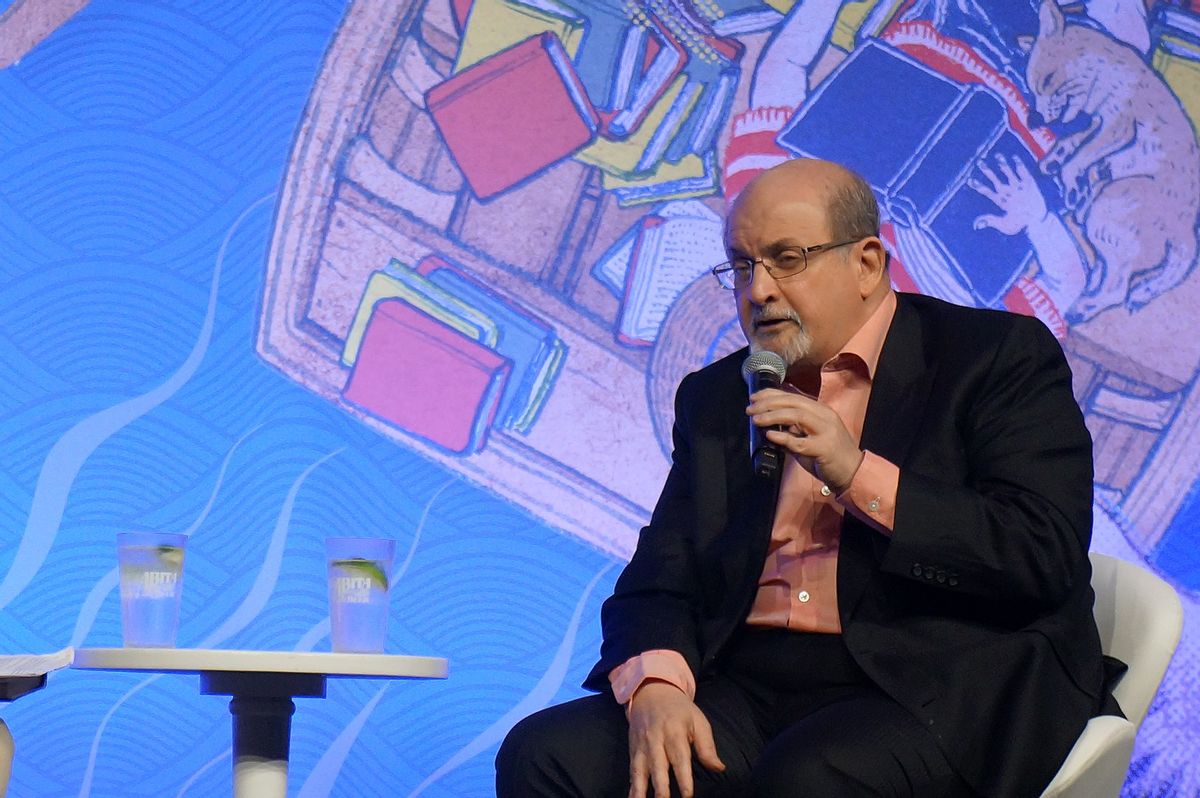Renowned author Salman Rushdie was back in the news for a book release after being attacked onstage by a knife-wielding man at a literary event in New York in August 2022. In a February 2023 interview with the New Yorker, he appeared in a photograph with the right lens of his glasses blacked over, as he had lost his vision in the eye due to the stabbing. In the interview he said, "I'm lucky. What I really want to say is that my main overwhelming feeling is gratitude."
But other alleged quotes were emerging and going viral, often being attributed to Rushdie in the wake of his return to the spotlight. The quote in question for this fact check focuses on the reported Muslim devoutness of his alleged attacker, who many assumed attacked Rushdie over the longstanding controversy over his 1988 book "The Satanic Verses." According to one tweet, Rushdie described the attacker as "one Muslim who followed the Quran."
The full alleged quote stated:
The large majority of peaceful Muslims don't matter because I was attacked by just one Muslim who followed Quran. All religions are not the same because they have not codified death to whoever does not believe in their religion. On my life I want to warn the world that Islam will not rest until every other society, culture, or religion is either annihilated or converted.
We looked for evidence of Rushdie saying these words, but found none. And he himself debunked it in a tweet, saying, "Fake quote. Not said by me":
In the New Yorker interview, when asked about whom he blamed for the attack, Rushdie blamed the defendant Hadi Matar alone and no one else. "I blame him," he said.
Matar is a Lebanese-American who was described in the news media as a "devout" Muslim. Matar has been charged with assault and attempted second-degree murder. Matar reportedly had not really read "The Satanic Verses," the book that put Rushdie in the crosshairs of conservative Muslim leaders, resulting in protests and death threats against him, and a fatwa in 1989 from then-Iranian leader, Ayatollah Ruhollah Khomeini (the latter called for Rushdie's assassination and put a bounty on his head).
According to an interview with the New York Post, Matar said he looked at a few pages of the book, and found Rushdie to be "someone who attacked Islam, he attacked their beliefs, the belief systems." The New Yorker reported it was unknown if Matar was suspected as acting under anyone's instructions or tutelage, or alone. But he did receive praise from Iranian state media.
"The Satanic Verses" was controversial because many Muslims found its depictions of Islam insulting. Among other accusations, Rushdie was accused of mocking key tenets of Islam, and through a character that he reportedly modeled on the Prophet Muhammad, he seemed to imply the sacred tenets of the faith came from a man, and not from God. The novel was banned in many countries at the time of its release, including Sudan, Bangladesh, and Sri Lanka.
In a statement after his 2022 attack, literary group PEN America said, "Salman Rushdie has been targeted for his words for decades but has never flinched nor faltered. He has devoted tireless energy to assisting others who are vulnerable and menaced. While we do not know the origins or motives of this attack, all those around the world who have met words with violence or called for the same are culpable for legitimizing this assault on a writer while he was engaged in his essential work of connecting to readers."
Given that Rushdie debunked this attribution himself, we rate it as "False."

